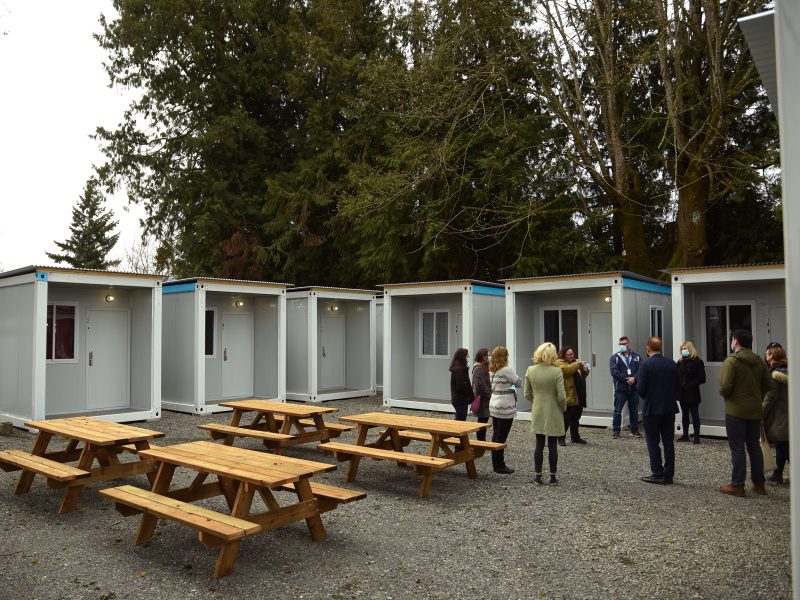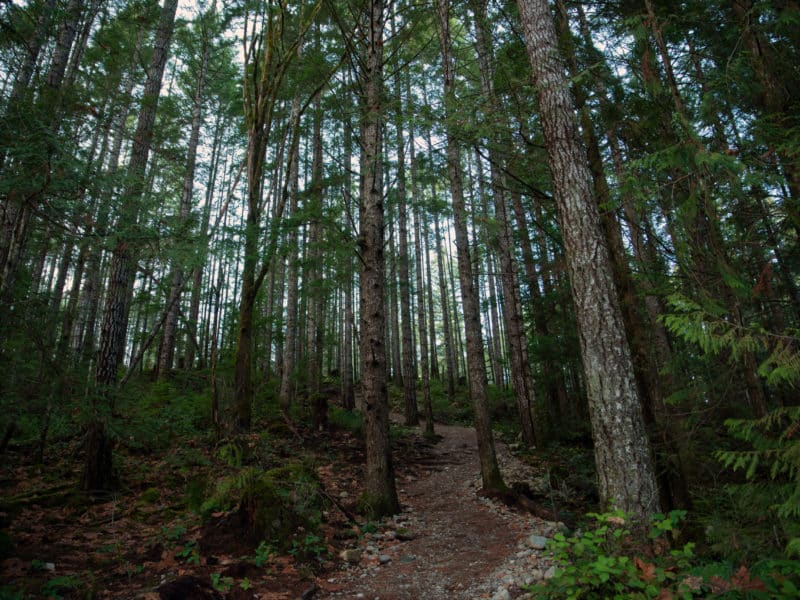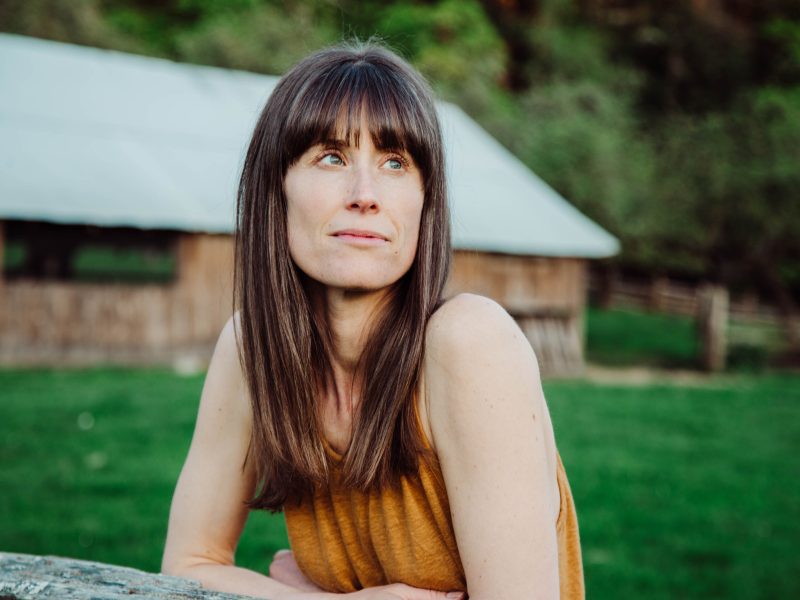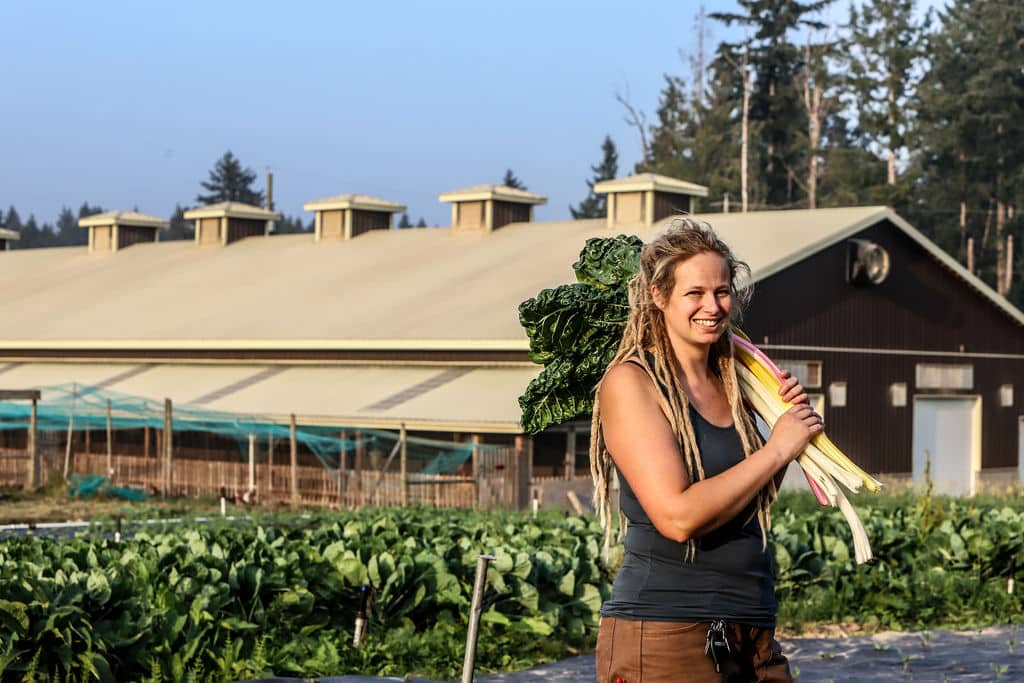
Cammy Lockwood owns and runs Lockwood Farms with her husband James. They produce eggs and vegetables in Cobble Hill, B.C.
I have wanted to write for a while. But to do so, means I actually need to sit with the weight of emotions, picking through them, and scripting them into an into intelligible vehicle that carries them to you.
Like most market-garden farmers, one of the reasons we got into agriculture is because we believed the apocalypse was nigh. In 2020, tongue-in-cheek, we made the T-shirts: “Lockwood Farms Apocalypse Team.”
Through 2021, we lived it; our year moved from crisis to crisis.
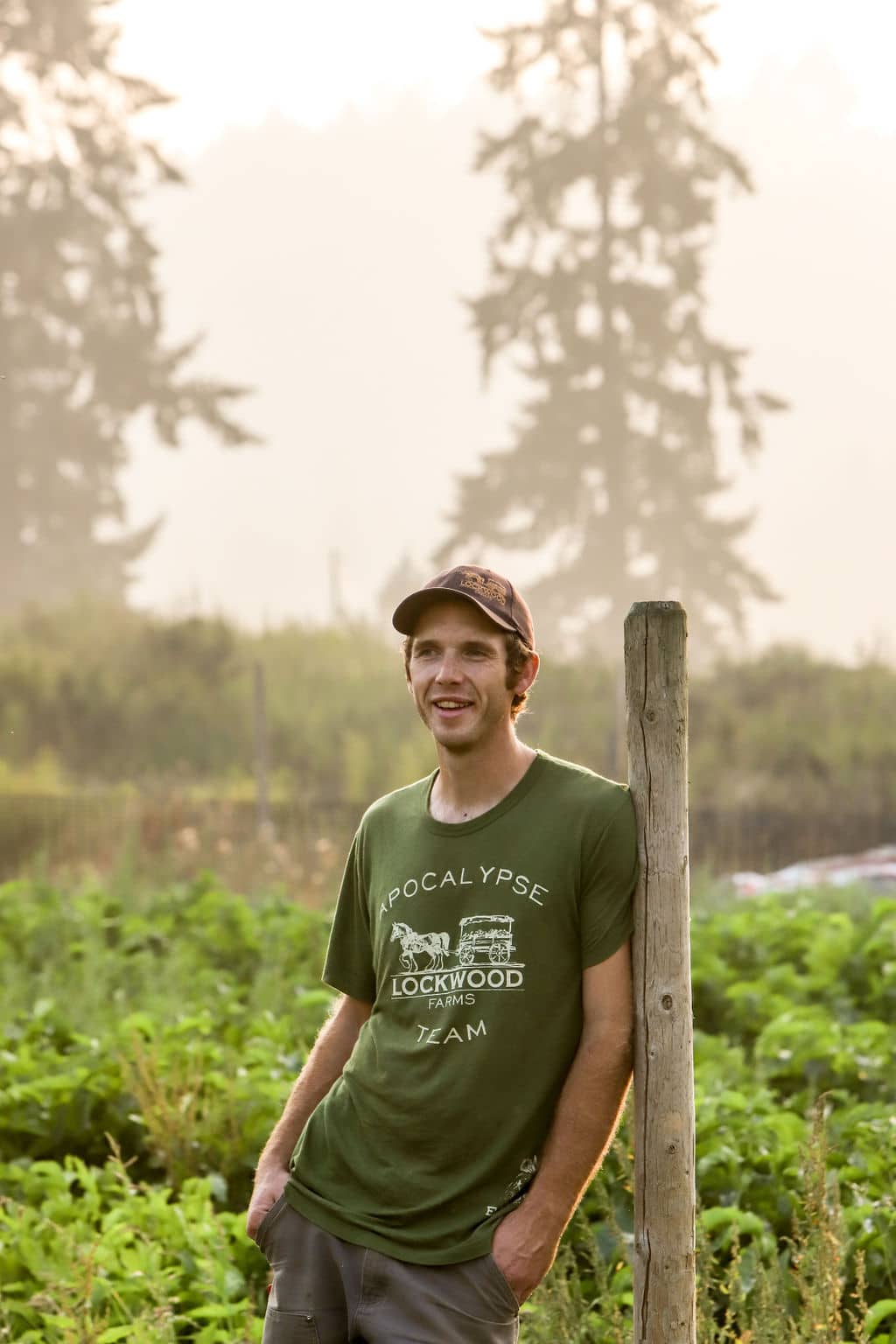
When the days are short, so are our work hours. We do our best to rest and plan when the soil is too frozen to dig, and the hens cuddle down into their nests. These past few winters (since 2018) saw several large storms and snowfalls that have become increasingly difficult to manage on the farm. We clear 700 metres of driveways, walkways, loading bays, and vehicles just to operate. Shovelling the snow from the top of our greenhouse became too much with the late January 2021 snowstorm. We cut the poly. The incredible sound of the heavy snow drifts falling 10 feet echoed the disappointment we felt. We will never know if our actions saved the greenhouse that day; we would only know if we didn’t do it and we should have. The inclement weather with snow storms, high winds, atmospheric rivers, and regular power outages have stolen our hibernation time.
Then came the heat.
Those last few days in June 2021 was like those movie scenes, when the protagonist knows something bad is going to happen and the noisy scene goes silent, and all you hear is the heartbeat. We could see it coming, and all we could do was focus inward and protect our farm. It felt like everything we had done in life brought us to this point. We summoned all our knowledge, all our resources, all our supplies, and a huge amount of adrenaline, to race against the rising heat to secure the lives of our livestock. Using our field irrigation supplies, large spray nozzles that had been hiding out for 30 years, we rigid up mister units for our barns’ interiors, and sprinklers for the roofs. Believe me when I say that we did EVERTHING we possible could to keep our birds alive.
When our team arrived on Monday (June 28th) morning, through a shaking voice and wringing hands I spoke: “Today could be the day we lose it all. We might not have a job for you tomorrow. Temperatures are predicted to hit 45 this afternoon.” We saw many of our plants wither. Some we actually watched changed from green to brown. Our well could not keep up. We were running irrigation (prioritizing those new barn systems) for 24 hours solid. There were not enough hours in the day to deliver all the water that was needed.
Then, Lytton combusted.
Pause. Breathe.
The ensuing droughts and wildfires continued through to September, keeping the threats at our doorstep.
And then, another: Monday, November 15th. We woke up listening to the pounding rain. James and I talked and we knew we needed to keep our schedules clear as we suspected we might encounter some rain-related emergencies. We were fortunate that our farm faired just fine. We had some big puddles, and mud, but our flat roof didn’t even spring a new leak. The Malahat closures proved to be more than an inconvenience, separating us from both our staff and customers.
Nothing could have prepared us for the total devastation our farming friends are facing in the Lower Mainland. Our farm survived okay, but the support network that holds us up is not okay. Our access to farming supplies and services are limited, everything agriculture is based there. They produce 50 percent of our province’s food. Our ENTIRE provincial supply chain was cut off: roads, rails and pipelines. Farms that feed hundreds of thousands of people were shattered. At this point we cannot know or understand the extent of the damage and devastation, and yet, the news cycle moves on. Farms that feed hundreds of thousands of people are, quite literally, picking up the pieces of their lives and businesses, unsure of how their land, soil, insurance providers and government will respond as they continue daily chores while wading through the fog of grief.
We have moved from crisis to crisis. I wake up, tense about what the day will bring, what crisis I need to deal with next. Our best laid plans have been up-ended. We are no different from other farmers. Mental health in farmers has long been a concern; the truth is that no amount of counselling, no pills, no healthy coping strategies are able to adequately address the very real problems that we face daily that are far beyond our realm of control.
I share this with people, and they look at me with compassion, “It must be so hard when your livelihood is so dependent on the weather.” Yes, it is. But let’s not forget, its your food.
As farmers we are on the frontlines of the climate crisis, and I am not sugar coating this, our frontlines are breaking. [end]

